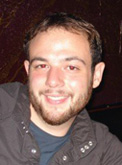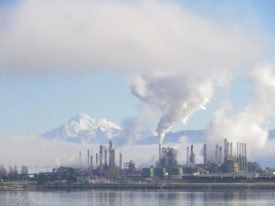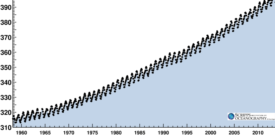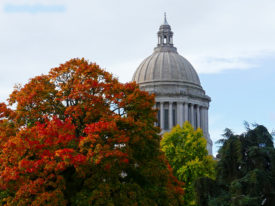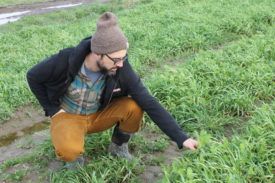Eric H:
Check out this infographic/comic, exploring the astonishing depths of our oceans.
Slate has a fantastic series up on walking: why Americans don’t do it, the science of sidewalks, and more. Here’s part one of four.
Nicole:
I just came across Elaine McMillon’s engaging short documentaries of communities in the southeastern US. This short film about the Muscogee tribe’s fight for federal recognition in Washington’s catercorner national neighbor, Florida, caught my eye. I was particularly interested in the way federal treaties and mandates continue to have a significant impact when they are so clearly outdated—in this case to the extreme of not even recognizing the existence of an entire People, because the code said they must be dead or gone. While the video is under three minutes long, it is also a powerful testimony to the slipperiness of standardized racial categorization. The good news? Times can change.
Valerie:
Simpsons’ creator Matt Groening reveals the true location of the elusive Springfield, and it’s right here in Cascadia. No report on the secret locale of Shelbyville, though.
Alan:
Gen Y wants to live in the urban core, not the ‘burbs.
Remember Casey Neistadt stealing his own bike repeatedly in New York? Here’s why people didn’t stop him. It’s not mere selfishness.
Washington Monthly tallies the president’s record and compares it with his public reputation: illuminating.
Anna:
I got the recent Rolling Stone for Jon Stewart’s interview with Bruce Springsteen, but I was glad (right word?) to see Matt Taibbi’s mind-blowing rant about Bank of America in there too—Bank of America: Too Crooked To Fail. It’s all the more reason to divorce your mega bank. I’m on a soap box here: I did it and it was hugely satisfying! (Yes! Magazine also gives you 8 ways to keep your money out of corporate clutches.)
Realclimate.org reports that scientists’ predictions about human-caused climate change pushing global temps higher were right on target.
Here’s a cool idea. A cousin of an old friend of mine wants your kids to develop a healthy relationship with food—good, nutritious food that’s varied and tastes good. She’s got a year’s worth of weekly food activities up her sleeve for parents who “take the challenge.” Sign me up!
Eric dP:
For folks interested in coal, let me highly recommend Barbara Freese’s Coal: A Human History. It’s the book you’ve always wanted to read about coal: intelligent, balanced, well-researched, and you can finish the whole thing in just a few hours.
Also on the coal front, I was riveted by Cassandra Profita’s OPB interview with coal industry journalist and expert Darren Epps. He casts a gimlet eye on the obstacles that coal shippers face to constructing an export terminal in the Northwest. And I liked Ashley Ahearn’s interview with climate scientist Steve Davis who tallies the carbon implications of coal export.
I loved the Seattle Times’ profile of defense attorney John Henry Browne whose life reads a little like a character in a movie.
Finally, “How Canada’s Green Credentials Fell Apart” is a disheartening (but wholly worthwhile) sketch by Bob Holmes in New Scientist.


